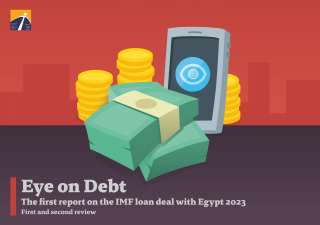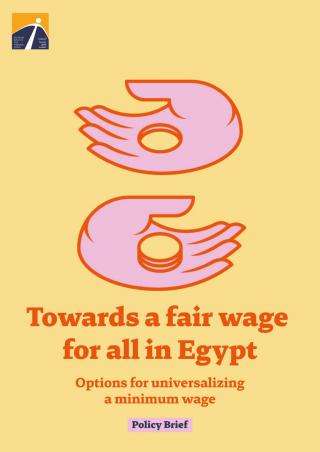-
Real spending on all items is on the wane, except for loan cost
Files: National Budget
This report was prepared by Mohamed Ramadan, researcher at the Economic and Social Justice Unit of the Egyptian Initiative for Personal Rights (EIPR), and edited by Wael Gamal, director of the unit.
I. Introduction
This year's Labour Day marks a very difficult year for all wage earners in Egypt.
This year's Labour Day marks a very difficult year for all wage earners in Egypt. The public debt crisis, the exchange rate crunch that resulted in significant devaluations of the local currency against the US dollar, the successive inflation shocks, the rises in commodity prices, and the economic policies sponsored by the International Monetary Fund (IMF) have all dealt successive painful blows to wages and living standards of the majority of wage dependants in Egypt.
To the Prime Ministers of Belgium, Alexander De Croo, Greece, Kyriakos Mitsotakis, and Italy, Giorgia Meloni, and the President of the European Commission, Ursula Von Der Leyen,
Egyptian Initiative for Personal Rights commentary
By Mohamed Ramadan, Economic and Social Justice Unit researcher
EIPR comment
Today, March 31st, the Egyptian Initiative for Personal Rights published the English translation of its periodic report on external debt, titled “External Debt rises again in 2020 and Coronavirus is not the only reason”. The report that was published in Arabic in August 2021 is the most recent issue of the series on foreign debt, which has been published by EIPR since 2017. It shows that Egypt’s external debts jumped in 2020, the first year of the COVID-19 pandemic.






